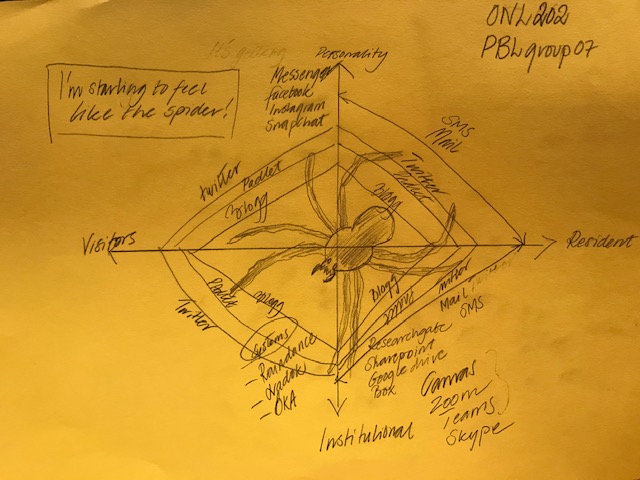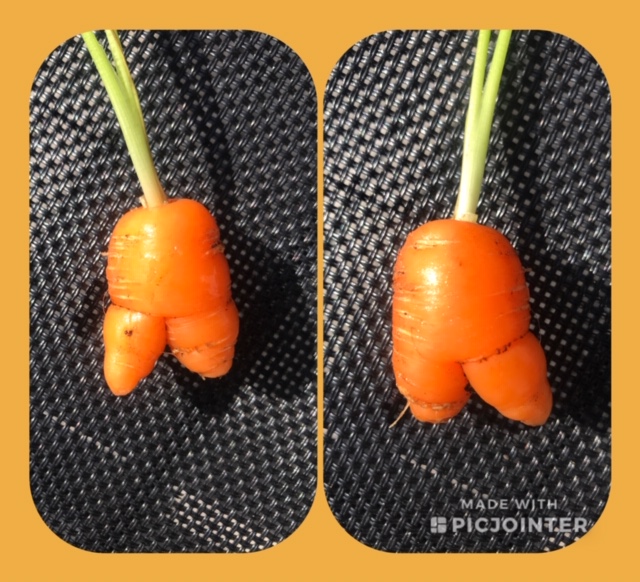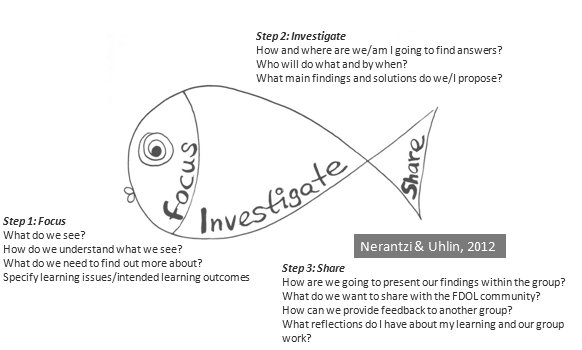What are the most important things that you have learnt through your engagement in the ONL course? When you enter a task / course and you notice that everyone has the same commitment and will to develop.
Why? Then you dare to throw yourself out and try things that you could not even imagine for security and trust is great.
How will your learning influence your practice? I will plan my courses that I am responsible for differently, materials, the facility, group assignments that progress not only in assignments but also current responsibilities
What are your thoughts about using technology to enhance learning/teaching in your own context? The digital tools are crucial because the program is web-based and this course has made me less worried and more afraid to try. But the tool should be effective and contribute to simplification. My point is not to have a tool just for that.
What are you going to do as a result of your involvement in ONL? I will market the course further and if I was not in the seat where I need to prioritize my time, I would definitely sign up to be co-facilitator. That chance may remain in the future 🙂
Why? When you see the other pblgroups I realize there are so much more out there by the collegues around the world.
What suggestions do you have (activities and/or in general) for development of eLearning in your own teaching or context? I have a dream of this, we started our program this autumn. But I see oppurtunity to develop t hat the students borrow simulations dolls home and I can educate the student by supporting them online with the instrumentation that dental hygiene students need. Me as a teacher, facilitator, I as a teacher are available online with technology that makes the student clearly see how I do, camera, zoom, etc.
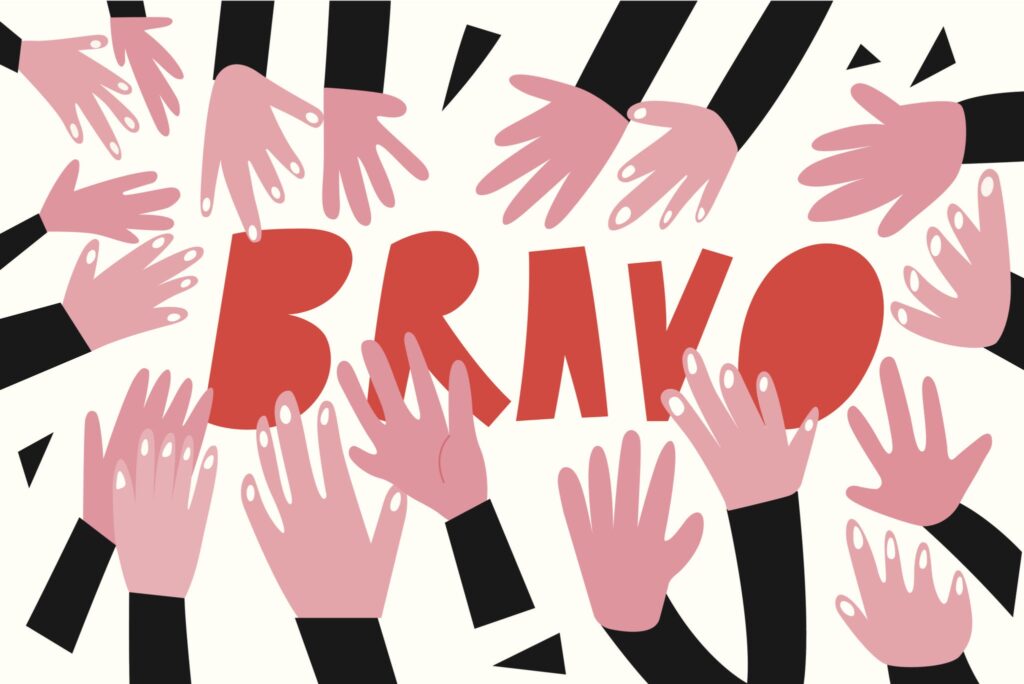
ONL learning- it was meant to be for me this autumn. Overload with new things but I needed this course to understand my self as a teacher or facilitator from now on :). Thank´s for open up my eyes for the open network, digital, blended education world, I´m not a super user but I´m certainly not the most novice, I realize I got some skills and I´m not afraid anymore of trying out things.
To learn new things it takes engagement, motivation earlier experinces and with ages I got severals perspectives. My personality is and has always been driven from curiousty. I realize I that I always have exposed myself to new things and like to develop. I have a strong will to understand and accept other people’s ways of thinking and solving different things, it broadens my views and makes me even more humble to everything left to learn.
PBL – my very first experience of being part of a group where the groupwork heading PBL (problem-based learning). And I will certainly adapt it and use it my planning courses in our dentalhygienist program and as further educator.
FISH model- Is also new experience for me and I liked it. But I shall be honest and tell you that our group PBL07 didn´t follow it slavic but actually our perfect PBLgroup worked excellent great anyway. I think it work so well because we match eachother totally well and my thougts of everyone of has been authentic, curious and keen on the topic. I made a blogpost of the FISH-model in the very first weeks just as remember for my self. My own library of useful things.
Digital tools- Maybe we could have used some more of them in our PBLgroup but if I summarize all new digital experience I have with this ONL course, i´m not disappointed at all. It ended up with several new things for me like, Padlet, Miro, Fresco (Gifs), Meme, blogging (I had started a littlebit before the ONL course but not that much), Twitter and tweetchat, Webinars and breakoutrooms, WhatsApp and I have perform a lot of new things by recording my self on video which I really not prefer or like at all. I don´t like to hear och see my self, but what should I do, I am who I am, nothing to do about that just accept it and try to make the best of what I got. The only thing we didn´t do as a group was to perform a recorded dance together. We have actually write poems Haiku ones as memes, you can see my Haiku Pomemes below.
And their are more good things from every single PBLgroup who showed wonderful solutions in their presentations which ends up with a big ocean of good stuff where I can go and pick it up and use beacuse I am out of my comfortzone and not that worried any more. An early christmas gift, like a fancy toolbox.
My Comfortzone- it has certainly expanded and I think I even got out of it. It feels really liberating. Before these course I was wooried of my skill, because I had some years of no teaching, so I needed to rethink, get over my ring rust and get back on the saddle again
Try things out beacuse I can more things than I think, I am so happy. I got ideas and feel more safe of my thinking so, from this autum I will try things more widely. Actually i think I appreciate to be co-facilitator but the lack of time will probably stop me. But there are more to investigate for sure.
Facilitators role- coach -the educators role/my role. I will update and adjust my approach to the teaching role, which means that the structure, planning of the course for which I am responsible will be planned differently. I will be more of rolemodel in the beginning and as students become more confident in the course structure, they are released more and more and become each other’s teachers / role models. Lena in my PBLgroup learned me the concept scaffolding. The meaning and purpose the purpose is to integrate the students with each other and create security for increasing independence. Creating a naturalness in the digital collaboration the geographical distance is uninteresting, it rather insignificant.
Blended learning, I hope that the wonderful and easily reachable material online can be used and make sence in education, i also hope that the student combine the easily reachable with books, beacuse reading books is also a great way of learning. combine with writing, listening and reflections. I also think of materials that can advantageously be included in the gym, walk or run. I realized the meaning by scenarios on an other way beacuse of the PBL layouten. In one of ONL webinars we talked about to keep the groups more continuously, because its is more important for online colloboration, and colloborative work. Frictions may appear but it is natural groupsetting and from frictions the performing appear beacuse the group getting to now eachother and now their personal skills. The gif below is PBLgroup07 proudly visualizing and presenting our view of blended learning. I safe the link as a rembemer to Fresco

I tried out to think a little bit more ONL like in the course which ended this friday (11th dec) and I used Padlet to rethink my planning of the course next autumn. The text is in swedish but I link to the Padlet where my planning is, so you can have a look at it. The course is about anatomy 15hp and reach for 10 hole weeks. The padlet visualizing the planning
PoMemes as japaneses Haikus, my suggestions, the group had as last session where we answer questions from Edwards Bonos hats which Lena and Karin as leader let us work with and the questions where. The link to Imgflip as remember for my self
- What have we done? (white hat)
- What has worked well? (yellow hat)
- What has been challenging? (black hat)
- What can we developed from here? (green hat)
- How do we summarize it all? (blue hat)
There is a red hat, but we agree that we don´t need to talk about disagrees 🙂
From our common collective words answerd of the black hat, I did these. I found it fun :). I made four suggestions and played around 🙂
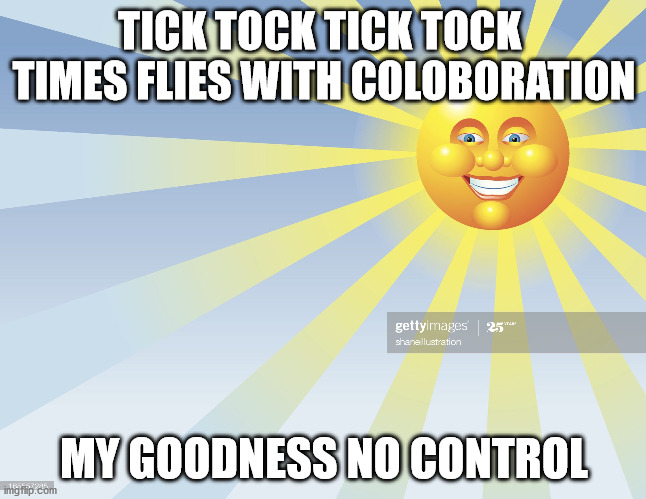
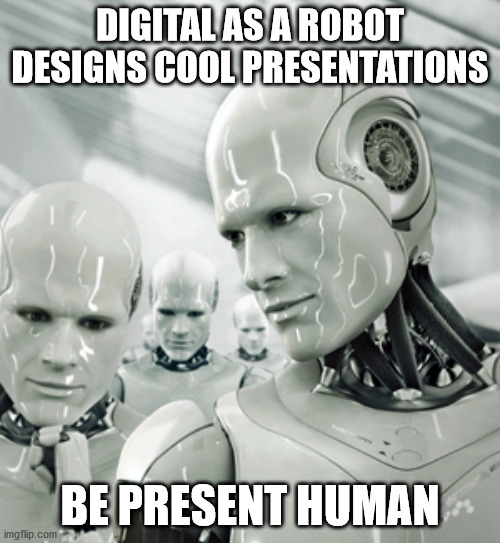
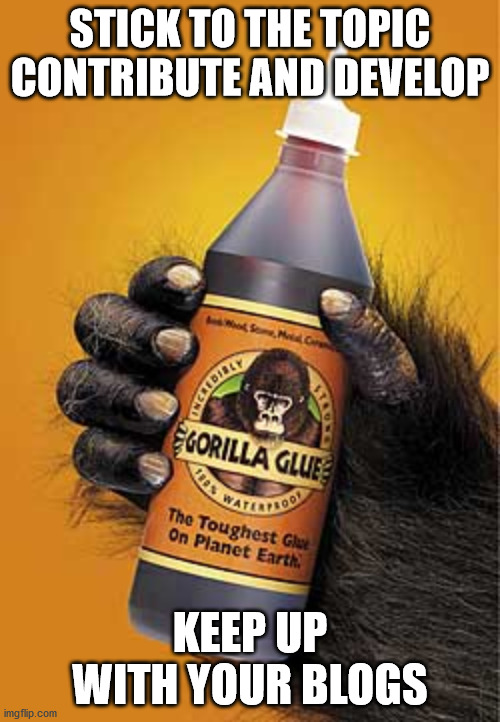
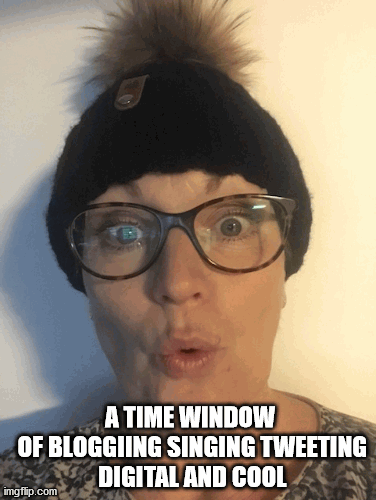
References
Topic 4
I have already wrote my idea of Library this is recomended literature from topic 4 on line learning and blended learning.
Cleveland-Innes, M. (2020). Roles, learning design, and the Community of Inquiry. Introductory presentation and slides on the Padlet
Salmon, G (2013) The Five Stage Model. [Homepage] http://www.gillysalmon.com/five-stage-model.html
Vaughan, N. D., Cleveland-Innes, M., & Garrison, D. R. (2013). Teaching in blended learning environments: Creating and sustaining communities of inquiry. Edmonton: AU Press. Chapter 1 “The Community of Inquiry Conceptual framework”.
Further optional readings and resources
Boelens, R., De Wever, B., & Voet, M. (2017). Four key challenges to the design of blended learning: A systematic literature review. Educational Research Review, 22, 1-18.
Cleveland-Innes, M. & Wilton, D. (2018). Guide to Blended Learning. Burnaby: Commonwealth of Learning.
Conole, G. (2015). The 7Cs of Learning Design. (manuscript)
Fiock, H. (2020). Designing a Community of Inquiry in Online Courses. The International Review of Research in Open and Distributed Learning, 21(1), 135-153.
Hodges, C. et.al (2020). The Difference Between Emergency Remote Teaching and Online Learning. EDUCAUSE review.
Universal Design for Learning (UDL) – homepage and guidelines
Topic 5
Marc Reyes, Kristi Kaeppel, and Emma Bjorngard-Basayne (2018): Memes and GIFs as Powerful Classroom Tools
Fantastic memes and how to use them, 2016, Higher Ed live (Video interview)
Mr. Allen 2018: Imgflip tutorial YouTube
Open Universities report Innovating pedagogy 2020 available here
NMC Horizon Report 2020 available here.
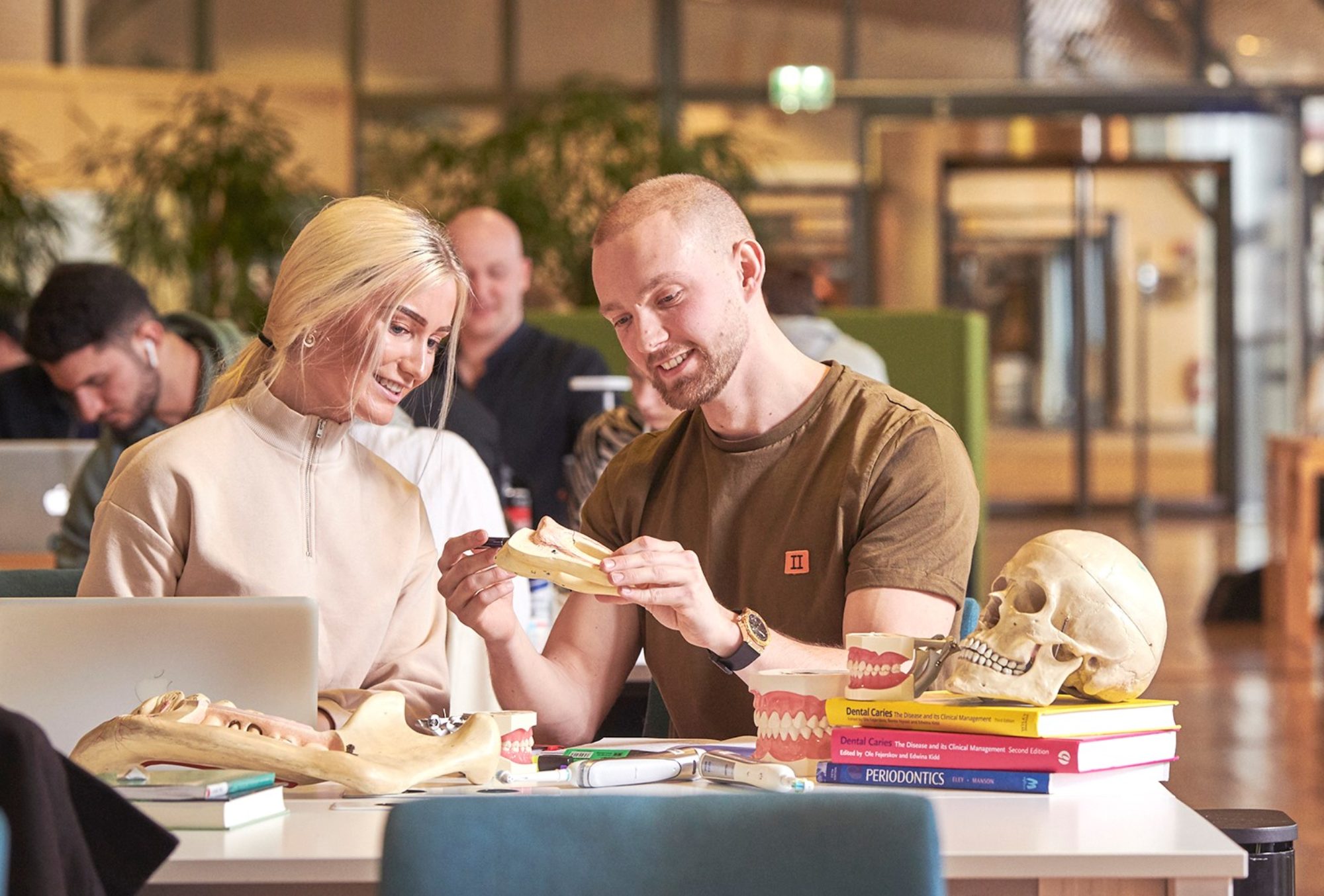
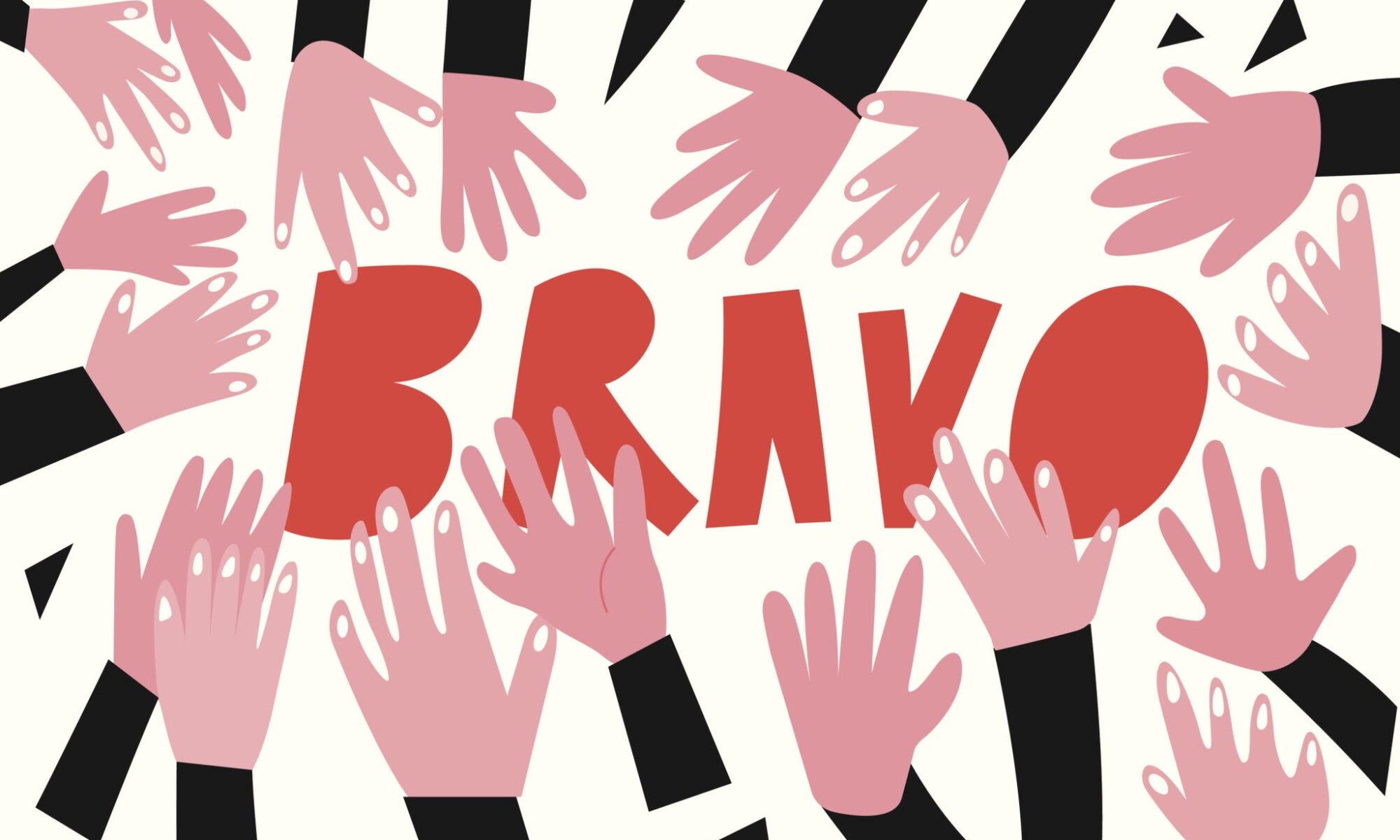
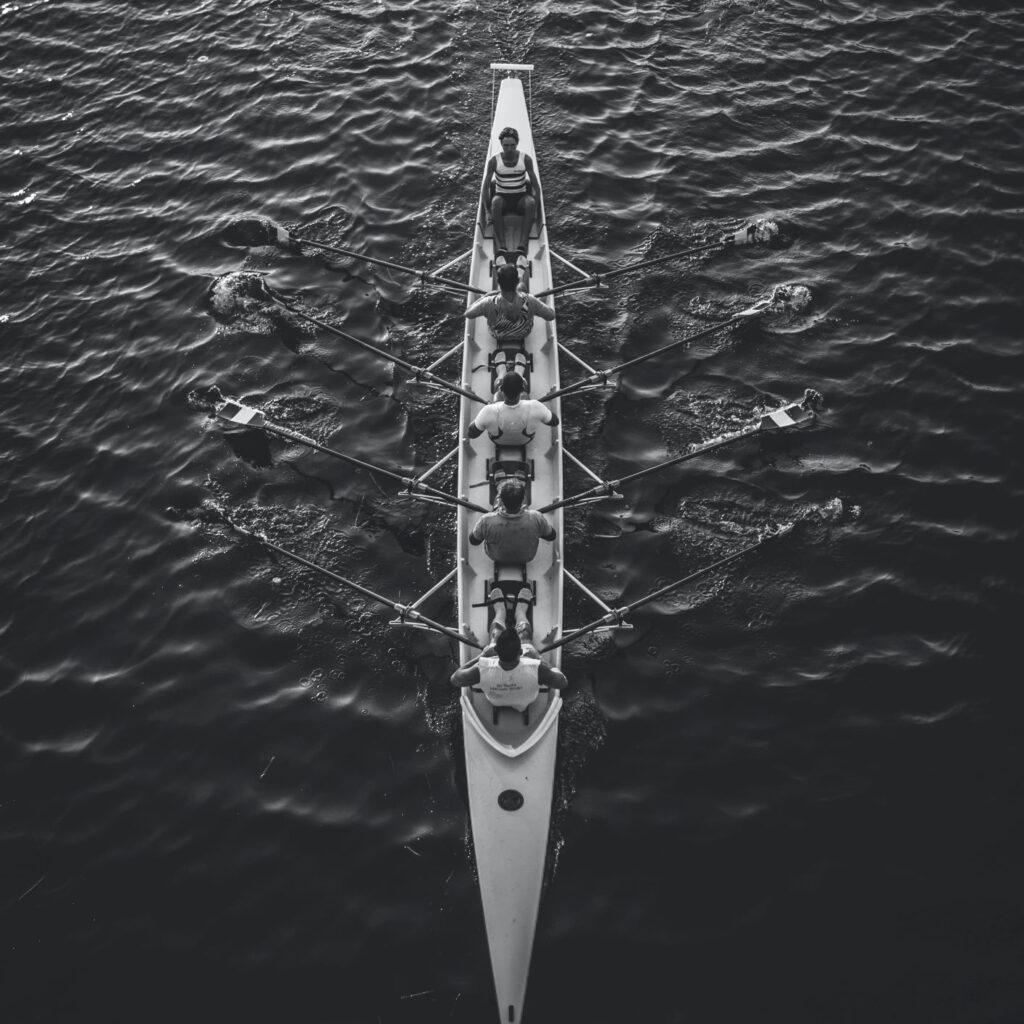
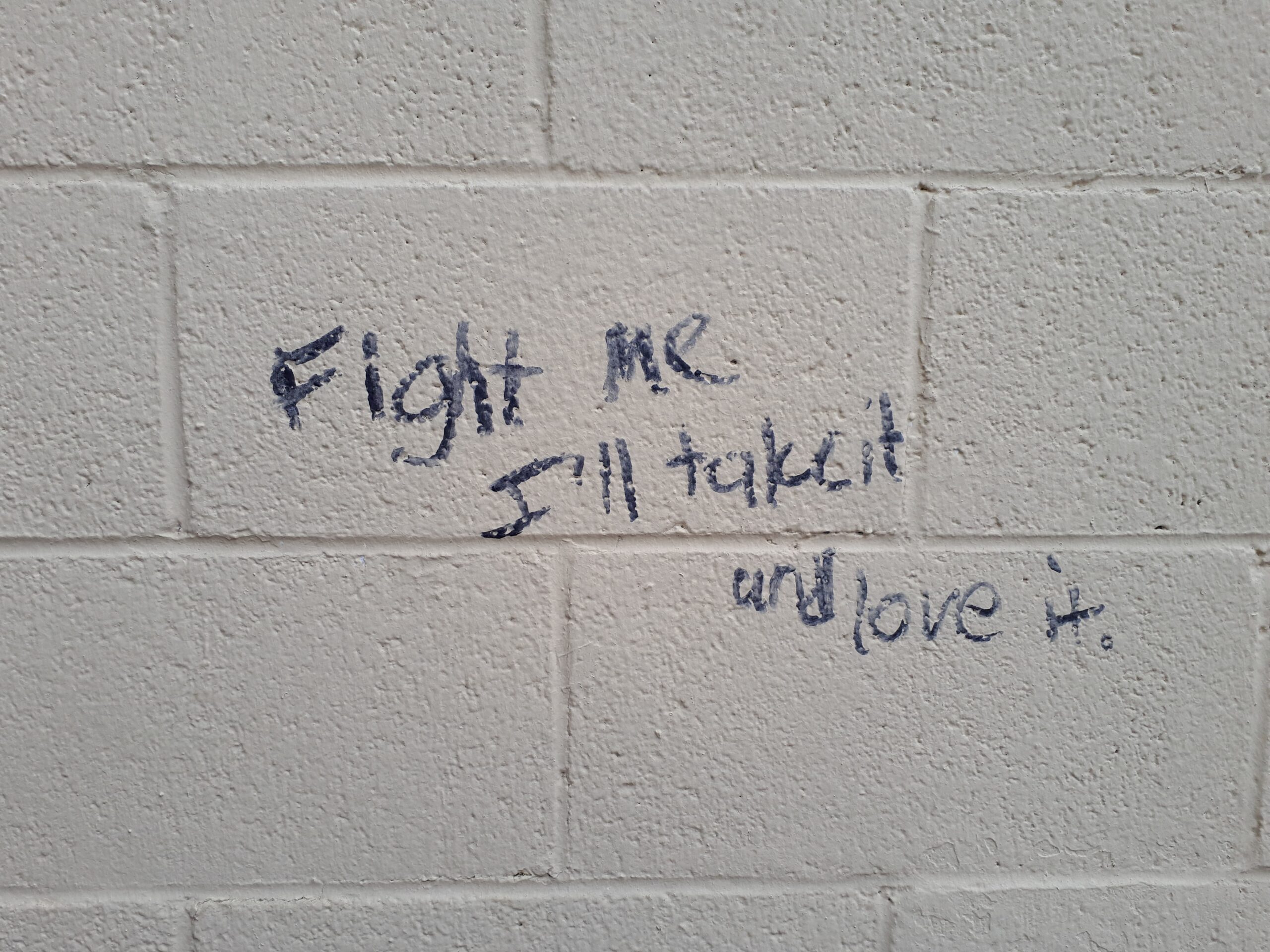
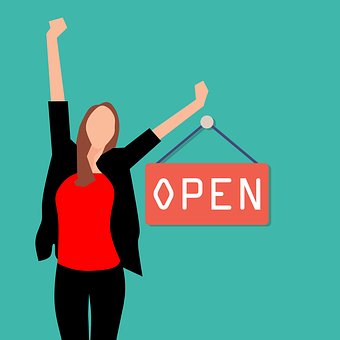
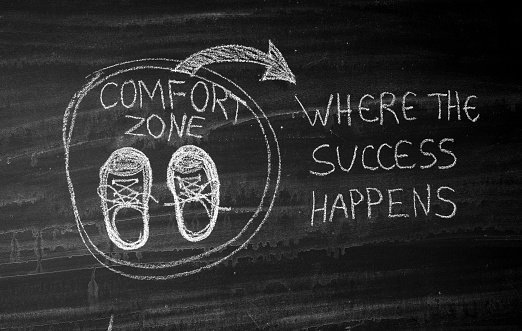 Foto; Pixaby
Foto; Pixaby